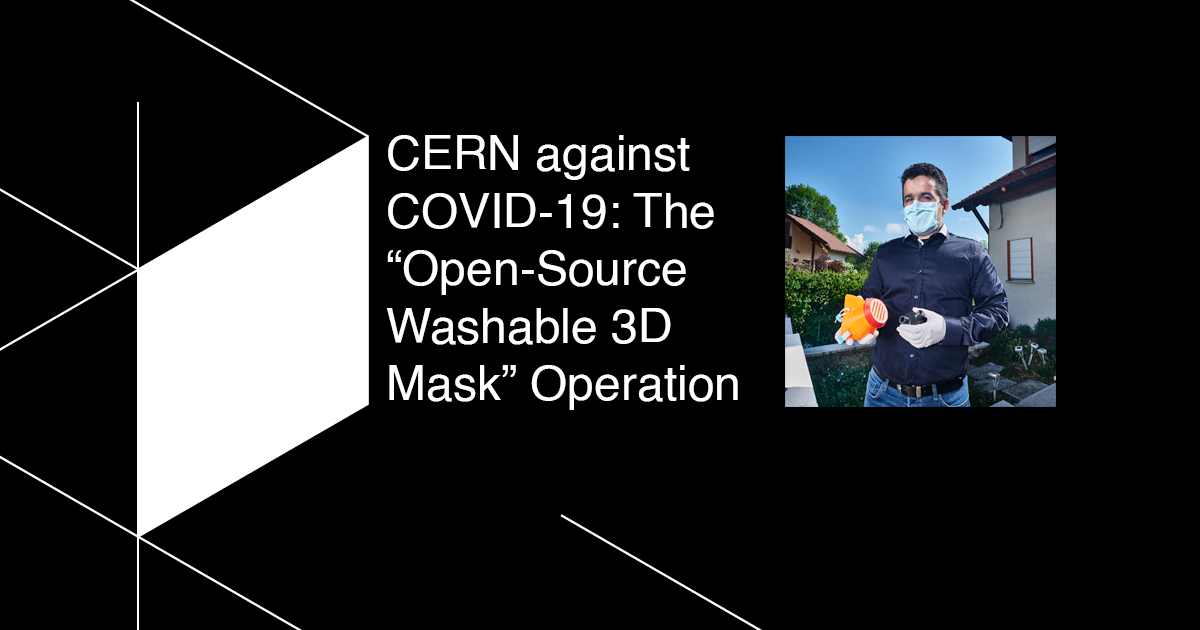CERN against COVID-19: The “Open-Source Washable 3D Mask” Operation

A conversation with Fernando Baltasar Dos Santos Pedrosa on the goodwill of CERN employees.
Fernando Baltasar Dos Santos Pedrosa is the face behind the “CERN Open-Source Washable 3D Mask”, a COVID-19 initiative launched during the first month of the pandemics. In March 2020 he teamed up with IdeaSquare and, after discussing what products to build (ventilators, masks, face shields, etc.), he decided to go for washable, 3D-printed face masks. Their design is now openly available on the CERN's Open Hardware Repository.
“We wanted to design a model for an open-source mask that others could easily reproduce, and the best place to prototype and 3D-print at CERN was IdeaSquare.”
On the 23rd of March 2020, Fernando sent out an e-mail to his colleagues asking for help to design medical ventilators. He got “a surprisingly immediate reply” from many CERN employees and even collaboration proposals from many companies and universities. “The whole point was to address the lack of access to places and materials during the first lockdown waves”, Fernando explains. That's why we had to think of simple materials that everyone could access. He was especially moved by the swift response of IdeaSquare, who unhesitantly "offered their knowledge on 3D printing machines, materials and techniques" for a good cause.
Given that the belief in the early days of the pandemic was that the virus was transferred rather through big droplets —as opposed to aerosols, which we know today—, Fernando, Markus Nordberg and another team of CERN volunteers set up to design a mask with an ambitious filtration level of 94%. After several tries with different printers, the team came up with a final 3D-printed washable mask with a 97% filtration level.
"We faced many challenges: finding the right materials (plastic, silicone, filters, etc.), designing a mould that could be printed by all 3D printers and final testing, which had to fulfil the imposed medical standards."
Despite the multiple challenges, it took Fernando and his team “about six weeks to discuss, prototype, and produce the masks for test with the lab". Markus Nordberg and the IdeaSquare team were key for that, because apart from prototyping they had plenty of experience in documenting, testing, and publishing in the CERN open hardware license platform. "It was impressive to see how much we could achieve in such a short period", he concludes joyfully.
"This experience proved that my gut feeling was right: people in the CERN community are more than willing to invest their knowledge, skills, and even personal time for the good of our society."
Fernando Baltasar Dos Santos Pedrosa has been a researcher at the ATLAS & ALICE experiments at CERN, and is currently working in the Engineering Department.